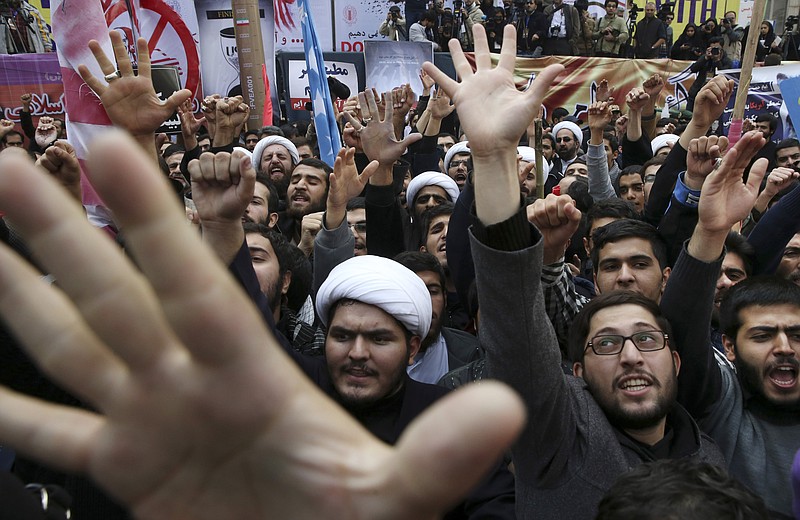Thank goodness the nuclear deal the United States and other Western nations signed with Iran this summer has caused a complete shift in relations against the country the Middle East nation once termed The Great Satan.
Oh, that's right, it hasn't.
In fact, earlier this week on the 36th anniversary of the 1979 seizure of 52 American hostages at the U.S. embassy in Tehran, thousands of Iranians demonstrated in front of the former embassy, burned U.S. flags and shouted "Death to America."
Not only has there not been a shift in relations since the U.S. and other nations agreed to lift economic sanctions against Iran in exchange for what is supposed to be a small limiting of the country's nuclear program, but Iran has violated the agreement by both launching a medium-range ballistic missile and arresting Lebanese citizen Nizar Zakka who holds permanent resident status in the U.S.
The "I-told-you-sos" must be ringing through Republican members of Congress, who opposed the deal, and through the minds of the American people, who also were against it.
It cannot be said Secretary of State John Kerry and President Obama weren't warned. Iran Supreme Leader Ayatollah Ali Khamenei said before the deal was ever signed that the country wouldn't change, wouldn't follow tenets of the agreement and had no thoughts of detente. But the agreement was signed.
With the 2016 presidential election now less than one year away, Americans also should not forget that Democratic front-runner Hillary Clinton endorsed the Iran deal and, in her waning months as secretary of state, helped open the door toward allowing the country to maintain at least some of its capacity to produce nuclear fuel if talks were held. The Obama administration had originally said Iran would have to end its nuclear program.
